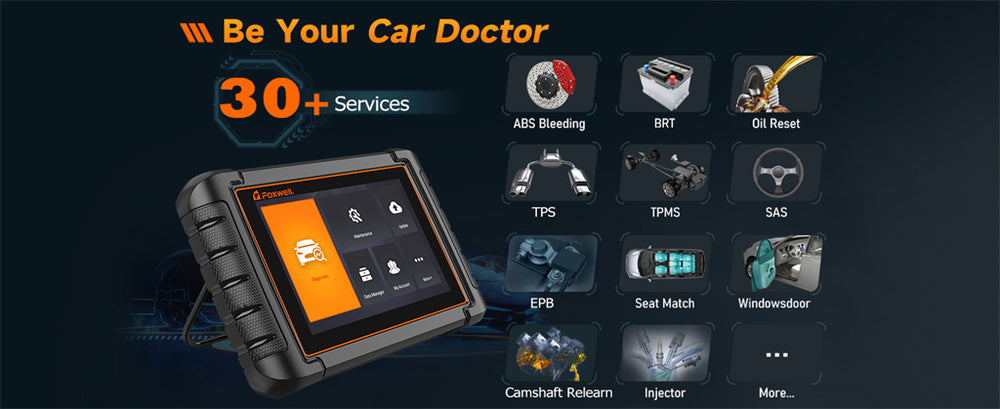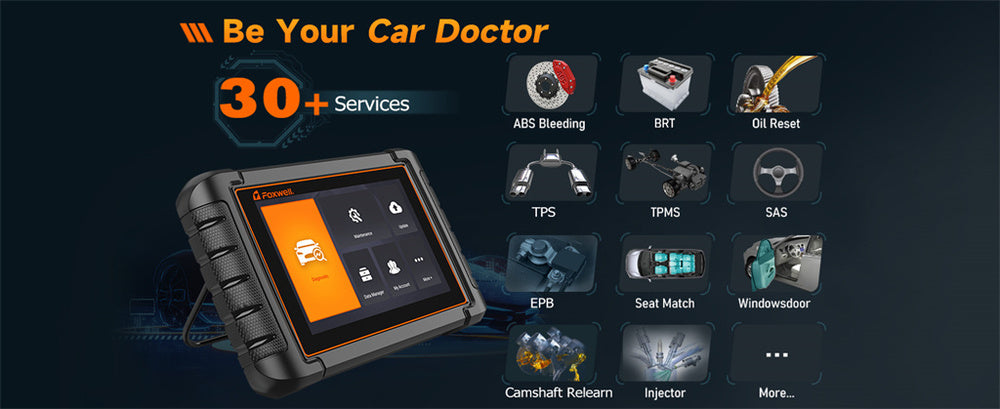It’s a frustrating sight: you’ve just had your oil changed, and as you drive away, that pesky engine light comes on! What gives?
An oil change is supposed to keep your car running smoothly, so why would the engine light show up now? Don't panic — this issue is more common than you think, and it doesn't always mean something serious.
Let’s dive into the possible reasons why this happens and figure out whether it's a small fix or something that needs more attention.
Common Reasons the Engine Light Turns On After an Oil Change

You might be wondering, "How could an oil change cause the engine light to come on?"
While an oil change seems like a simple procedure, a few minor errors or issues can lead to that engine light being triggered. Here are some of the most common reasons:
Oil Cap or Oil Filter Issues: Sometimes, after an oil change, the oil cap isn’t tightened properly, or the oil filter isn’t installed correctly. This can lead to air leaks, which the engine’s sensors can detect, resulting in the engine light turning on. It's a quick fix, but it’s worth checking.
Wrong Oil Type: Did the mechanic use the right oil for your car? Using oil with the wrong viscosity can affect your engine’s performance, and modern vehicles with sensitive sensors may pick up on this, causing the engine light to illuminate.
Overfilling or Underfilling Oil: Both too much and too little oil can cause problems. Overfilling can create too much pressure, while underfilling means your engine isn’t getting the lubrication it needs. Either scenario can lead to an engine light warning.
These are the most common culprits after an oil change. But could something else be going on?
Could the Oil Change Itself Cause the Engine Light to Turn On?
Yes, sometimes the oil change itself is the direct cause of the engine light coming on. How?
Your car has numerous sensors that monitor various engine functions, including oil pressure and flow. Even a small issue during the oil change can trigger these sensors.
Oil Pressure Sensor Issues: If the oil pressure sensor is damaged or disturbed during the oil change, it could send faulty signals to the car’s computer. This might make the engine light come on, even though there’s no real issue with your oil pressure.
Maintenance Light Reset: Some cars have a maintenance light that needs to be reset manually after an oil change. If this isn’t done, the light might stay on, tricking you into thinking something is wrong when it's really just a reset that was missed.
Sometimes the light has nothing to do with the oil change itself but is a result of something unrelated that just happens to show up at the same time.
Other Unrelated Issues That Might Trigger the Engine Light
It’s easy to assume that the oil change caused the problem, but sometimes, the timing is purely coincidental. There are plenty of other reasons your engine light might turn on, and they can be completely unrelated to the oil change.
Here are a few common culprits:
Oxygen Sensor Problems: The oxygen sensor monitors how much unburned oxygen is in your exhaust system. If this sensor fails, it can trigger the engine light.
Loose or Faulty Gas Cap: A surprisingly common cause of the engine light coming on is a loose or faulty gas cap! If your gas cap isn’t tightly secured, the fuel system can detect a leak, and the engine light will come on.
EVAP System Issues: The evaporative emission control system (EVAP) prevents fuel vapors from escaping into the atmosphere. If there’s a problem with the EVAP system, such as a leak, it can trigger the engine light.
Even though these issues aren’t related to the oil change, they still need to be addressed.
Is It Safe to Keep Driving with the Engine Light On?
The big question: is it safe to drive with the engine light on? The answer depends on whether the light is solid or flashing.
If the engine light is solid, it usually indicates a non-urgent issue. In most cases, you can continue driving for a short period, but you should definitely get it checked out as soon as possible.
If the engine light is flashing, stop driving immediately! A flashing light often means a more serious issue, such as a misfire. In this case, it’s best to pull over and call a mechanic.
So, while a solid engine light isn’t a reason to panic, it’s definitely something to get checked sooner rather than later.
What to Do When the Engine Light Stays On After an Oil Change
If your engine light stays on after an oil change, here’s a step-by-step guide to help you figure out what’s going on and what to do next:
Check the oil level: Ensure the oil is neither overfilled nor underfilled. Adjust if necessary.
Check the oil cap and filter: Make sure both are securely fastened.
Tighten the gas cap: A loose gas cap can easily trigger the light. Give it a firm twist!
Reset the maintenance light: If your car has a maintenance reminder that wasn’t reset after the oil change, this might be the cause of the light staying on.
Use a diagnostic tool: If the light remains on, using a diagnostic tool like the Foxwell NT1009 OBD2 scanner can help. This handy tool reads error codes and gives you detailed information about what’s causing the engine light to stay on.
Visit a mechanic: If all else fails and the light won’t go off, it’s time to consult a professional.

Conclusion
Seeing the engine light come on right after an oil change can be annoying, but it’s not always a sign of a serious problem.
From something as simple as a loose oil cap to unrelated issues like an oxygen sensor or gas cap, there are plenty of reasons why this might happen.
The key is not to ignore the light — a quick check can help you avoid bigger, costlier problems down the road.
Whether it’s tightening a gas cap or using a Foxwell NT1009 to check for diagnostic codes, staying on top of engine light alerts will keep your car running smoothly.
FAQs
Can too much oil cause a check engine light?
Yes, overfilling your engine with oil can cause increased pressure, which may trigger the check engine light. It can also lead to issues like oil foaming or leaks that affect engine performance.
Why would my check oil light come on after oil change?
Your check oil light might come on if the oil level is too low or too high, the oil cap or filter isn't secured properly, or there’s an issue with the oil pressure sensor during the change.
Can past due oil change cause check engine light?
Yes, delaying an oil change can cause engine performance issues, leading to excessive wear or sludge buildup, which can trigger the check engine light as the engine struggles to function efficiently.




Leave a comment
This site is protected by hCaptcha and the hCaptcha Privacy Policy and Terms of Service apply.